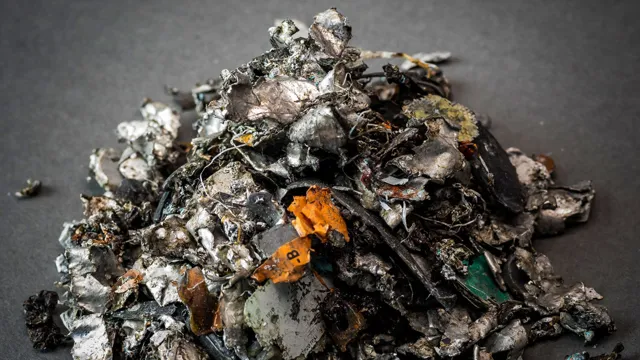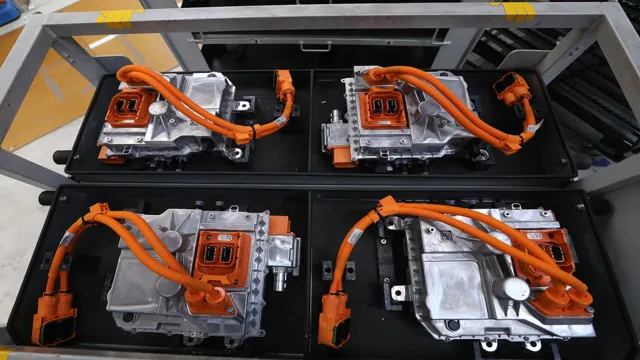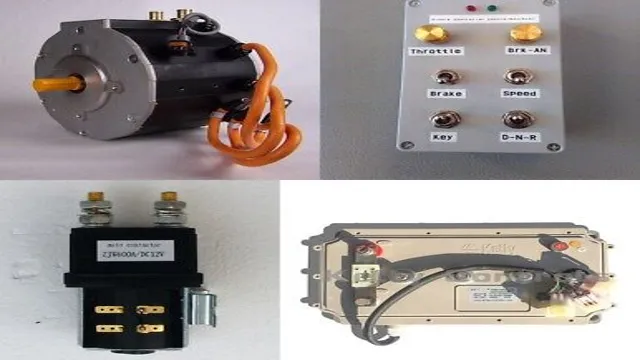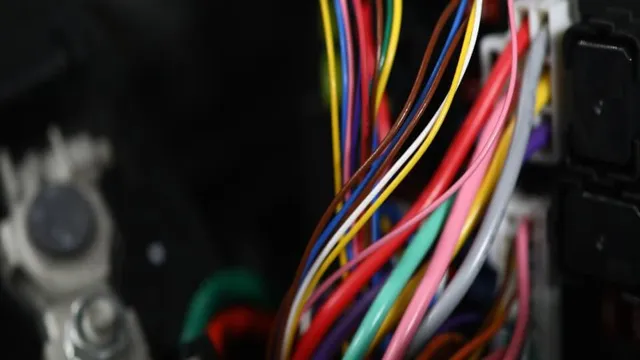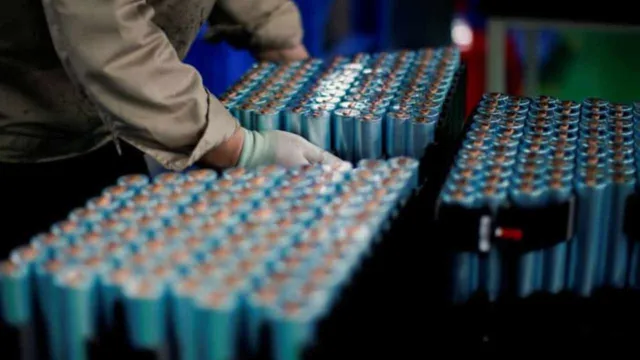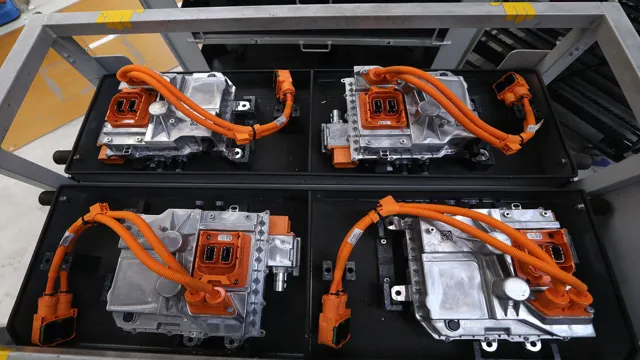The Shocking Truth About Electric Car Batteries: Are They Creating a Toxic Waste Problem?
Electric cars have become a popular choice for many consumers who want to reduce their carbon footprint while still enjoying the convenience and comfort of driving their own vehicles. However, a growing concern has arisen about what happens to the batteries of electric vehicles once they have reached the end of their lifespan. Are they just going to sit in landfills, causing more harm than good to the environment? The answer is both yes and no.
Electric car batteries contain toxic metals and chemicals, such as lithium, cobalt, and nickel. Improper disposal of these batteries can lead to groundwater contamination and soil pollution. However, the good news is that most electric car manufacturers have implemented recycling programs that allow for the safe and efficient disposal of these batteries.
In fact, many of these programs have been successful in recovering and recycling up to 99% of the battery materials. These recycled materials can then be used for the production of new batteries, reducing the need for new mining activities and lowering the overall environmental impact of the production and disposal processes. While electric car batteries do contain toxic materials, their impact can be mitigated through responsible recycling programs.
As consumers, we should be aware of these programs and do our part in ensuring that our electric vehicle batteries have a second life, reducing our carbon footprint and protecting the environment in the process.
Overview of Electric Car Batteries
Electric car batteries are one of the most important components of electric vehicles, as they provide the power necessary to move the car. While they are great for reducing emissions and promoting a more eco-friendly mode of transportation, the batteries themselves can pose environmental risks. Electric car batteries, when improperly disposed of, can release toxic chemicals into the soil and water, leading to pollution and harm to the environment.
It is important to ensure proper disposal and recycling of these batteries to prevent them from becoming toxic waste. With responsible handling and proper recycling, electric car batteries can be safely and effectively reused, reducing the overall environmental impact of electric vehicles.
Composition of electric car batteries and their toxicity
Electric car batteries are typically made up of a combination of several materials, including lithium, cobalt, nickel, manganese, and graphite. The specific composition of the battery can vary depending on the manufacturer and the desired performance of the vehicle. While these materials provide a reliable and efficient way to power electric cars, they do come with some potential drawbacks.
For example, some of the materials used in the batteries can be toxic if not handled properly. In addition, the mining and production of these materials can have environmental impacts. Despite these concerns, electric car batteries are still considered to be a cleaner and more sustainable way to power vehicles compared to traditional gasoline engines.
As demand for electric vehicles continues to grow, the industry is exploring new ways to create batteries that are even more efficient and environmentally friendly.

Comparison to traditional gasoline car waste
Electric car batteries are a fantastic alternative to traditional gasoline cars, and offer a huge benefit to the environment. The typical electric car battery can last anywhere from 8-10 years. During this time, the battery will gradually lose its ability to hold a charge, but it can be repurposed and used for other purposes after its life inside the car has ended.
This is a significant improvement over gasoline cars, as their batteries often end up in landfills, where they take hundreds of years to decompose and release toxic chemicals into the soil. Additionally, the production of traditional gasoline car batteries is a highly energy-intensive process that produces carbon emissions, whereas electric car batteries are much simpler to produce and require less energy. Overall, electric car batteries are a sustainable and eco-friendly solution to traditional car batteries, and provide a real opportunity to reduce our carbon footprint and protect the planet.
Lifecycle of Electric Car Batteries
When people think about the environmental impact of electric cars, they often forget about the lifecycle of electric car batteries. While electric cars produce zero emissions on the road, the production and disposal of their batteries can have a significant environmental impact. In fact, electric car batteries are considered toxic waste and must be carefully disposed of to prevent contamination of land and water.
However, many electric car manufacturers have begun implementing programs to recycle and reuse these batteries instead of simply disposing of them. By reusing the batteries, they can reduce their environmental impact and also provide affordable energy storage for homes and businesses. It’s important to consider the entire lifecycle of electric car batteries when evaluating the environmental impact of electric vehicles, and to support companies that are making an effort to reduce their waste and carbon footprint.
Manufacturing process and environmental impact
The lifecycle of electric car batteries is an important consideration when discussing the environmental impact of these vehicles. The manufacturing process of these batteries requires a significant amount of energy and resources, including materials such as lithium, cobalt, and nickel. These materials are often mined in environmentally sensitive areas, leading to habitat destruction and pollution.
Additionally, the process of refining and processing these materials produces emissions and contributes to climate change. Once a battery is no longer useful for a car, it can be repurposed for other applications but eventually, it will need to be recycled. This can also present challenges as the process of recycling these batteries is often complex, and if not done properly, can lead to further environmental damage.
Overall, while electric cars offer a cleaner mode of transportation, it’s important to consider the entire lifecycle of the battery and work towards minimizing the environmental impact at every step of the way.
Usage phase and potential for toxic release
The lifecycle of electric car batteries is an important topic to consider when thinking about the usage phase and potential for toxic release. While electric car batteries can be incredibly beneficial for reducing carbon emissions during the driving phase, they do have a limited lifespan. After this lifespan is reached, the batteries need to be disposed of or recycled properly.
This is where the potential for toxic release comes into play. If the batteries aren’t disposed of properly, chemicals like lead and lithium can seep into the soil and water, causing harm to the environment and human health. That’s why it’s crucial for manufacturers to create sustainable and efficient methods for recycling these batteries at the end of their lifecycle.
By properly managing the disposal and recycling of electric car batteries, we can ensure that their benefits outweigh any potential harm.
End-of-life disposal and recycling options
Electric car batteries have a lifecycle that spans from manufacturing to disposal. The production of these batteries requires raw materials, energy, and transportation, leading to a significant carbon footprint. However, the good news is that electric car batteries are designed to last for a long time, around 8-10 years or more, drastically reducing the frequency of replacements.
At the end of their useful life, the batteries can be reused in stationary applications such as household storage or recycled to recover valuable metals like cobalt, nickel, and lithium. Recycling can be done through a closed-loop process that separates the materials from the battery. Moreover, recycling helps to reduce pollution and the depletion of natural resources.
Therefore, the lifecycle of electric car batteries is an environmentally friendly way to reduce carbon emissions if properly managed and disposed of.
Efforts to Minimize Toxic Waste
When it comes to electric car batteries, one of the main concerns is the toxic waste that they produce. Fortunately, there are efforts being made to minimize this issue. Companies are working on developing new and innovative technologies that can facilitate the recycling and reuse of these batteries.
Additionally, some automakers are exploring new ways to design their batteries in order to reduce the amount of toxic waste they produce in the first place. For example, several manufacturers are exploring the use of less toxic metals in the production of their batteries, which could reduce the environmental impact of these components. Overall, there is a real sense of commitment within the industry to reducing the environmental impact of electric car batteries.
As the technology continues to evolve, we can expect to see even more innovation in this area, ultimately leading to more sustainable and environmentally friendly vehicles for everyone.
Government regulations and industry standards
As we become more aware of the negative impact of toxic waste on our environment, governments around the world are taking steps to regulate industries and reduce their production of hazardous materials. Industry standards have also been established to ensure that companies are following best practices when it comes to waste reduction and disposal. These efforts are aimed at minimizing the amount of toxic waste that ends up in our waterways, landfills, and ultimately our bodies.
While progress has been made, there is still much work to be done to ensure that our planet and its inhabitants are protected from the harmful effects of toxic waste. By working together, we can create a sustainable future where toxic waste is no longer a threat to our health and environment.
Advancements in battery technology and recycling methods
As the world shifts towards clean energy and sustainable practices, advancements in battery technology and recycling methods have become increasingly important. One of the key areas of focus is minimizing toxic waste, which can have a detrimental impact on the environment. To address this concern, researchers are developing new battery chemistries that use less toxic materials, such as lithium iron phosphate or sodium-ion batteries.
Moreover, efforts are underway to improve recycling processes that can recover valuable materials, such as cobalt, nickel, and lithium, which are essential for manufacturing new batteries. By minimizing toxic waste and recovering valuable materials, we can reduce the environmental impact of battery production and consumption. This is crucial for a sustainable future where clean energy is an essential part of our daily lives.
Conclusion
In conclusion, electric car batteries may contain toxic waste, but let’s compare that to the emissions released from traditional gas-powered vehicles. With electric cars, we can significantly reduce our carbon footprint and harmful pollutants in the air. So while we work to find more sustainable and eco-friendly solutions for battery disposal, let’s not forget the positive impact electric cars have on the environment as a whole.
After all, it’s all about balance – just like charging your electric car battery.”
FAQs
What makes electric car batteries toxic?
Electric car batteries contain toxic materials such as lead and lithium which can harm the environment if not properly disposed of.
Are there any alternatives to using toxic materials in electric car batteries?
Yes, some companies are exploring the use of non-toxic materials in electric car batteries, such as sodium-ion batteries which use salt instead of lithium.
How can we safely dispose of electric car batteries?
Electric car batteries should be recycled to prevent toxic waste. Many car manufacturers have programs in place to recycle their batteries properly.
How long do electric car batteries last?
The lifespan of an electric car battery can vary depending on the make and model of the car, but most electric car batteries are designed to last at least 100,000 miles or more.
